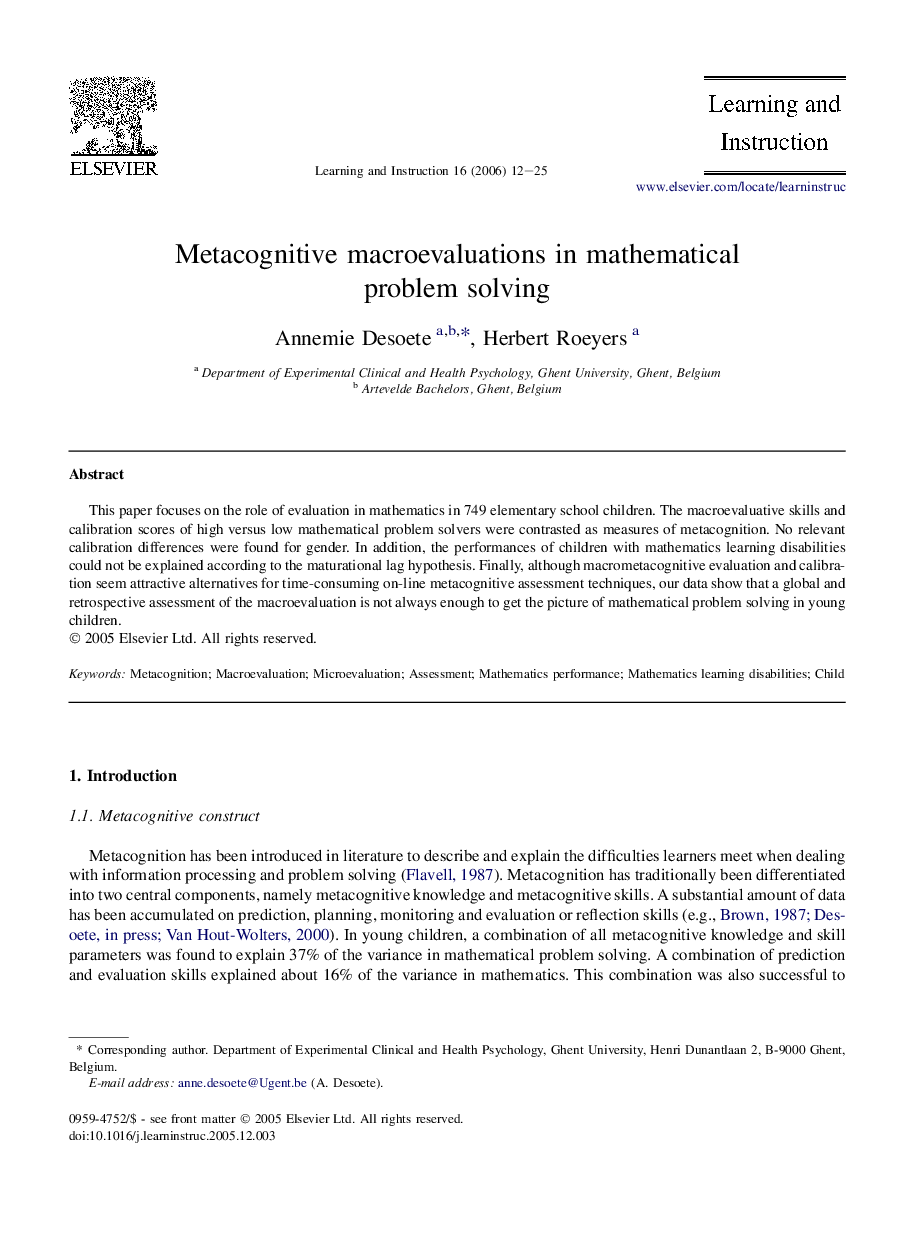| Article ID | Journal | Published Year | Pages | File Type |
|---|---|---|---|---|
| 366036 | Learning and Instruction | 2006 | 14 Pages |
This paper focuses on the role of evaluation in mathematics in 749 elementary school children. The macroevaluative skills and calibration scores of high versus low mathematical problem solvers were contrasted as measures of metacognition. No relevant calibration differences were found for gender. In addition, the performances of children with mathematics learning disabilities could not be explained according to the maturational lag hypothesis. Finally, although macrometacognitive evaluation and calibration seem attractive alternatives for time-consuming on-line metacognitive assessment techniques, our data show that a global and retrospective assessment of the macroevaluation is not always enough to get the picture of mathematical problem solving in young children.
